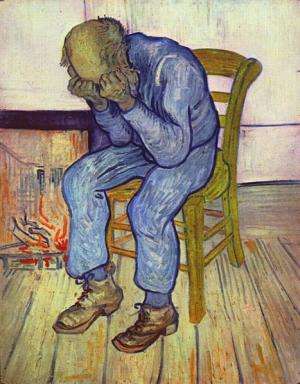Phases of clinical depression could affect treatment

(Medical Xpress)—Research led by the University of Adelaide has resulted in new insights into clinical depression that demonstrate there cannot be a "one-size-fits-all" approach to treating the disease.
As part of their findings, the researchers have developed a new model for clinical depression that takes into account the dynamic role of the immune system. This neuroimmune interaction results in different phases of depression, and has implications for current treatment
practices.
"Depression is much more complex than we have previously understood," says senior author Professor Bernhard Baune, Head of Psychiatry at the University of Adelaide.
"Past research has shown that there are inflammatory mechanisms at work in depression. But in the last 10 years there has been much research into the complexities of how the immune system interacts with brain function, both in healthy brains and in people experiencing depression.
"Unfortunately, much of the research is contradictory – and in asking ourselves why, we undertook a review of all the studies conducted to date on these issues.
"This has led us to the conclusion that there are different immune factors at work in depression depending on the clinical phase of depression, and that the genes for this immune response are switched on and off at different times according to phases.
"What we see in the clinical states of acute depression, relapse, remission, and recovery is a highly complex interaction between inflammatory and other immunological cells, brain cells and systems.
"This new model helps us to overcome the simplistic notion that depression is the same kind of disease for everyone, behaving in the same way regardless of the timing of the disease. We can now see that depression is a much more neurobiologically dynamic disease, and this has many implications for both research and treatment," Professor Baune says.
Professor Baune says clinicians and patients alike should be aware that common treatments for depression may, at times, not work based on this new understanding of neuroimmune phases in the disease.
"We are urging caution on the use of blanket anti-inflammatory medication for the treatment of depression. This treatment may need to be tailored according to the phase of illness a patient is undergoing, and this would require an immune profile of the patient prior to
treatment," Professor Baune says.
More information: H.A. Eyre, M.J. Stuart, B.T. Baune, "A phase-specific neuroimmune model of clinical depression," Progress in Neuro-Psychopharmacology and Biological Psychiatry, Volume 54, 3 October 2014, Pages 265-274, ISSN 0278-5846, dx.doi.org/10.1016/j.pnpbp.2014.06.011.

















